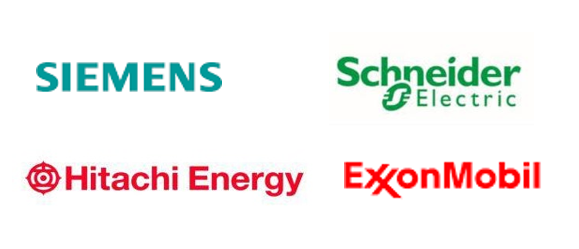Protection Relay Market Overview
The report is titled as ‘Protection Relay Market: Opportunity Analysis and Future Assessment 2022-2030’. An overview of conceptual frameworks, analytical approaches of the Protection Relay market is the main objective of the report, which further consists the market opportunity and insights of the data involved in the making of the respective market. Protection Relay market is expected to grow with significant rate in the near future.
In 2020, global protection relay market was valued at US$ XXX Mn and expected to grow significantly at a CAGR of XXX % over the forecast period
Protection Relay Introduction
Protective relay alludes to a mechanized or electronic system that is ensconced in electrical circuits to mitigate the failures in generators, motors, and transformers. It accommodates inputs by way of voltage, current, temperature, and resistance, contrasts them to set points, and offers the outputs by way of indicator lights, alarms or control warnings. In addition, it also holds the role of a fault sensing device that provides the lilting command to the circuit breaker, in this way playing down the damage induced to the other devices or equipment in the circuit.
In contrast to the conventionally employed protective relays, the contemporary versions are microprocessor-based digital devices that are more effective and cost-efficient. For instance, if a facility is continuously readjusting or resetting circuit breakers, substituting fuses, or fixing equipment and cannot track down the issue, they are likely to be encountering overcurrent’s. If this is the case, the user can set up a protection relay that possesses an overcurrent feature. The relay calculates the current (input) and enables the user to schedule limits (settings) into the relay. One of the primary factor that is majorly driving the growth of the market is the swift industrialization, together with the rise in demand for renewable energy sources from the power sector, which is projected to boost the demand of protective relays in the following years.
Protection Relay Market Segmentation
The global protection relay market is segmented on the basis of type, voltage ranges, protection mechanism, industry vertical, application, end users, and region.
By Type
Electromagnetics Relays
Solid- State Relays
Microprocessor Relays
By Voltage Ranges
High Voltage
Medium Voltage
Low Voltage
By Protection Mechanism
Feeder Protection
Motor Protection
Transmission Line
Generator Protection
Busbar Protection
Capacitor Bank
Breaker
By Industries Vertical
Utilities
Industrial
Commercial and Institutional
Renewable
Marine
Oil and Gas
Food and Beverages
Automotive
Others
By Application
Line Protection
Generator Protection
Transformer Protection
Others
By End Users
Network Operators
Electricity Suppliers
Industrial Enterprises
By Region
North America
Latin America
Europe
Asia Pacific
Middle East
Africa
Protection Relay Market Key Players
Some of the key participating players in global protection relay market are:
Basler Electric Company
Littelfuse, Inc.
Toshiba Energy Systems & Solutions Corporation
Woodward, Inc.
LARSEN & TOUBRO LIMITED
Eaton
Siemens
Schneider Electric
ABB
General Electric Company
Rockwell Automation, Inc.
SOLCON
TERASAKI ELECTRIC CO.,LTD
ZIV
ERLPhase Power Technologies Ltd.
Schweitzer Engineering Laboratories, Inc.
Mitsubishi Electric Corporation
NR Electric Co., Ltd.
Hitachi Energy Ltd.
SEG ELECTRONICS GMBH
WEG
Fuji Electric Co., Ltd.
TE Connectivity
Factors that are benchmarked while estimating the market
Various factors that are benchmarked while estimating the market growth includes (but not restricted to):
New product designs and launches
Current product compliance
Reimbursement
Concerns for use of Protection Relay
Advantages of Protection Relay
Actions taken by the manufacturer and respective regulatory authorities also impact the market growth of the segment. These factors are understood at regional level and in major countries globally for providing regional insights of the product segment in the report. This helps our clients to take informed decision.
A mix of top-down and bottom-up approach is followed to arrive and validate our market value estimations. For a product segment like wherein one/two manufacturer(s) dominates the market, it’s product sales, previous growth rates and market expansion plans are considered to generate market share in the market.

